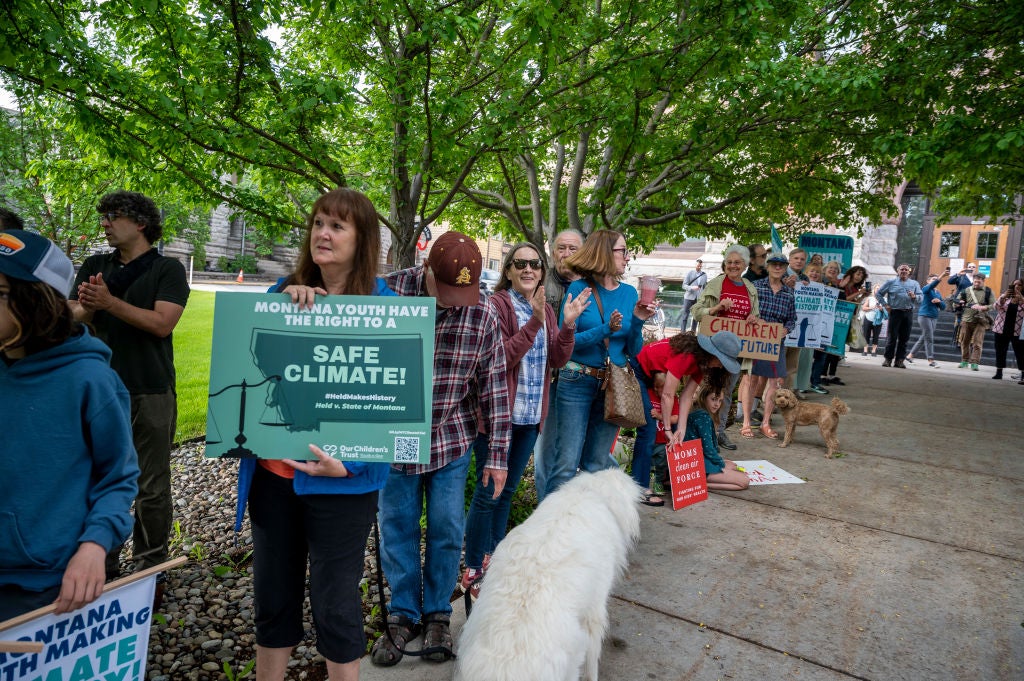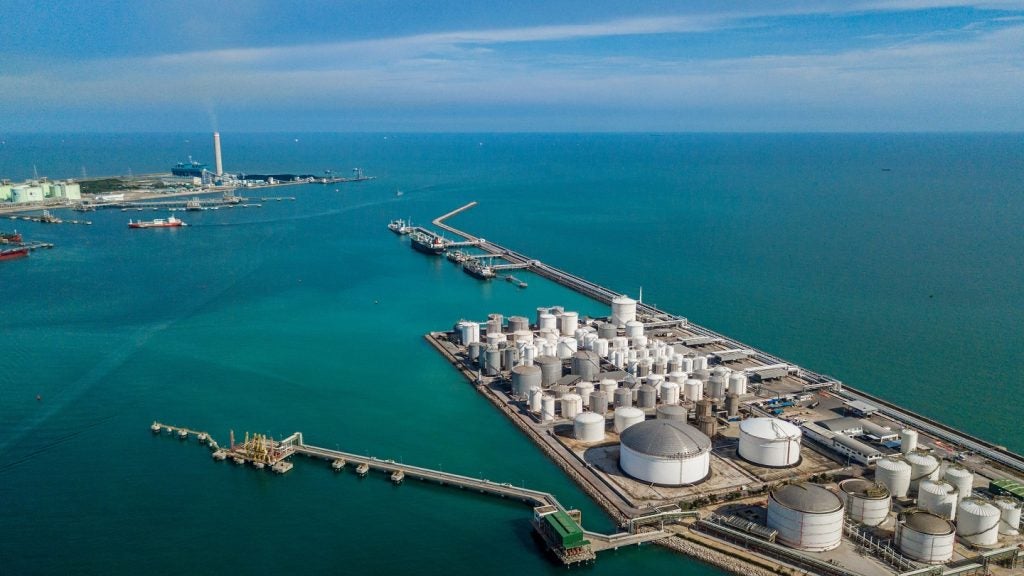
A first-of-its-kind climate trial in Montana, US, came to a close on Tuesday after lawyers on each side of the case gave closing statements placing the blame for climate change in very different places.
The trial for the case Held vs Montana, the first constitutional climate trial in US history, began last week after being filed initially in March 2020 by 16 young Montana residents, with the plaintiffs then aged between two and 18 years old.
Lawyers representing the youth-led team argued on Tuesday that Montana officials must be held accountable for exacerbating the climate crisis with pro-fossil fuel government policies and thereby violating the plaintiffs’ state constitution right to a “clean and healthful environment”. According to the complaint, the young people are now “living through longer fire seasons, smoke-filled summers and drier rivers,” Montana Public Radio reported.
The plaintiffs also requested the state set a limit on greenhouse gas (GHG) emissions. The attorney representing the plaintiffs said that the state has taken recent action to make the climate crisis tangibly worse by enacting a 2023 law that bans consideration of GHG emissions when permitting new energy projects.
“Plaintiffs are asking this court to declare that a stable climate system is fundamental to the protection of their rights to clean and healthful environment,” Nate Bellinger, the lead attorney representing the plaintiffs with non-profit law firm Our Children’s Trust, said in closing arguments.
After one week of presenting their argument, the state took just one day and called on one expert witness in its rebuttal. The defence argued that the climate crisis is a global concern and if Montana is contributing to it in any way, the plaintiffs should look to change legislation, rather than suing the state. It also said that reducing GHG emissions in Montana would not have any impact on the lives of the young team.
How well do you really know your competitors?
Access the most comprehensive Company Profiles on the market, powered by GlobalData. Save hours of research. Gain competitive edge.

Thank you!
Your download email will arrive shortly
Not ready to buy yet? Download a free sample
We are confident about the unique quality of our Company Profiles. However, we want you to make the most beneficial decision for your business, so we offer a free sample that you can download by submitting the below form
By GlobalDataAttorneys for the state said on Friday that they would not call one of their top expert witnesses, climatologist Judith Curry, to the stand, although she did provide written testimony for the court. Curry is widely known for disagreeing with the firmly established scientific consensus that human activity is the primary driver of global warming. DeSmog reported in May that Curry had already at that time billed the state $30,000 for her report and was charging a further $400 per hour for her contribution.
The director of Montana’s Department of Environmental Quality, which is named as a defendant in the case, had said before the trial began that he was unfamiliar with the Intergovernmental Panel on Climate Change, the world’s leading and definitive climate body, according to the Guardian.
A ruling will come from Judge Kathy Seeley, who has presided over the case, although this is expected to take weeks or even months.
A favourable verdict could set an important precedent for other climate trials currently being brought at the local and federal level elsewhere in the US. Judge Seeley has said previously that if her ruling is in favour of the challengers, she will issue a “declaratory judgement” saying state officials violated the state constitution, although she added that she would not directly order a new approach to climate change mitigation.







